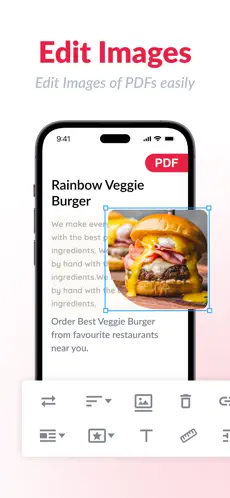Digital evolution has significantly shifted the way professional and academic tasks are executed, communicated, and documented. Rising dependence on digital technology has initiated a change in moving from classical paperwork to digitized documentation and making procedures streamlined and environmentally sustainable. As technologies have advanced in recent years, people have utilized PDF applications, web-based PDF editors, and PDF compressors to simplify functions, which promotes smooth document handling in academia and professions.

The Part PDF Technology Plays in the Digital Transition:
One of the greatest revolutionized features of the digital revolution is the universal use of PDF (Portable Document Format) technology. PDFs have emerged as the cross-platform universal file format for document sharing and document storage because they are compatible with numerous platforms and devices. Whether one is submitting research work in academia, drafting company reports, or transmitting legal documents, PDFs are the format of choice because they retain their shape regardless of the device or application through which they are opened.
Multiple online PDF conversion tools have been developed to improve efficiency. These tools allow users to convert other file formats like Word, Excel, and images into PDFs and vice versa. This has considerably minimized the need for hard paperwork, making workflows more organized and easy to access.
How PDF Apps Facilitate Academic & Professional Growth:
A PDF app is critical for students, teachers, and professionals who require rapid and convenient document handling. Such apps enable users to read, annotate, and share PDFs easily, which makes virtual learning and remote work more effective.
For example, students may employ a PDF app to read e-books, lecture notes, and assignments, while business professionals may use the same technology to read business proposals and contracts. Editing, highlighting, and commenting on PDFs increase collaboration and enhance productivity overall.
Optimizing Documents with a PDF Compressor App:
Large PDF files tend to be difficult to share, particularly where there is an issue of email attachments or cloud storage capacity. This is where a PDF compressor app comes in handy. Through the minimization of the file size without loss of quality, these apps guarantee that the users will be able to upload and share documents without reaching storage capacity.
At workplaces, companies often employ PDF compressor software to handle reports, bills, and presentation efficiently. Researchers, however, can compress research papers and thesis documents to share easily with colleagues and mentors.
Boosting Productivity with an Online PDF Editor:
The possibility of editing a PDF directly without having to reformat it has greatly enhanced online workflows. With an online PDF editor, you can edit text, add pictures, sign, and correct anything needed in the document. This saves you the inconvenience of printing, scanning, and uploading a document only for minor corrections.
For scholars, an online PDF editor is specifically helpful to finish assignments and digitally fill out application forms. For corporates, the professionals use these tools to expedite changes to contracts, agreements, and reports, thereby saving effort and time.
The Future of Digital Documentation:
With further technological developments, the need for effective document management solutions like online PDF converter tools will continue to grow. The future of professional and educational documentation is automation, AI-based text recognition, and cloud storage solutions. The inclusion of smart PDF tools will increase security, accessibility, and convenience for users.